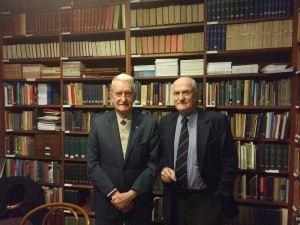France Today
Sydney-based French expert, Ross Steele AM, engaged a lively audience at Glover Cottages on Tuesday 7 July. France, he said, remained the world’s most popular tourist destination: its paintings, its architecture and grand sense of history, its music, the countryside and its sporting events, were unique – an antidote for a uniform globalised tourist world. But since François Hollande became president in 2012, France has been suffering from serious and growing economic decline, instability, high unemployment, and internal disunity. Terrorist attacks have instilled fear, self-doubt and the rise of the Right. Particularly worrisome was the growing number of dispossessed – the children of North African emigrés born in France and therefore French citizens, unemployed, alienated and dispossessed, living angry and aimless lives in the banlieues ringing all major cities. Ross traced the presidents from de Gaulle to Hollande and the political swings from left to right that accompanied them. But, he predicted, these oscillations will be mild compared with what was coming in the 2017 presidential elections. The French were traditionally proud of their liberty, equality and fraternity, but only their liberty, and freedom of speech, remained a dominant force. Equality had been degraded by the growing gap between rich and poor, and fraternity by the sense of alienation of the dispossessed. Meanwhile, French popular sentiment was swinging to the Right. Marine Le Pen, leader of the National Front and daughter of Jean-Marie Le Pen who began the movement, was likely to defeat François Hollande and become president. If she did, she would withdraw France from the European Union and replace the Euro with the Franc. Her level of tolerance for Jews and Africans was very low. She denied that the Holocaust had happened. She wanted to send all ‘Arabs’ back home. Such policies, if carried through, would create much unrest – France, traditionally a country which welcomed immigrants – had the largest Jewish and Muslim minorities in Europe.
But Ross was by nature an optimist, and looked to what might become one bright spot in the French political firmament – the UN-Sponsored Climate Change conference to be held in France in November 2015. Twenty thousand delegates were coming from around the world. The French do not see global warming as serious a problem as unemployment, but they will nevertheless see the conference as an opportunity to promote their country and all its undeniable attractions.
Report prepared by Richard Broinowski
